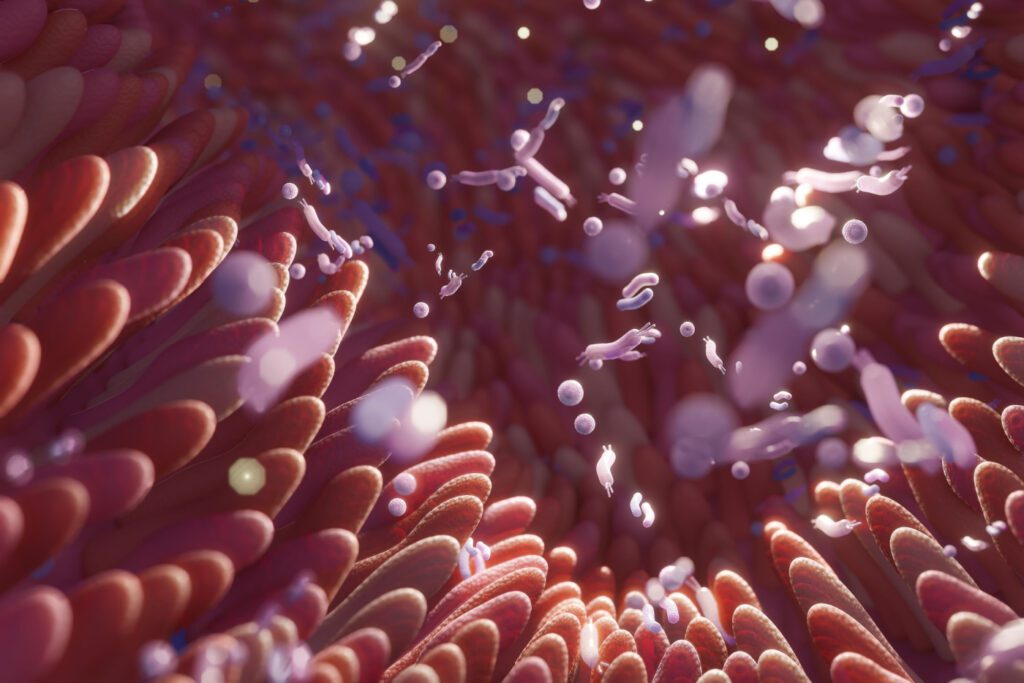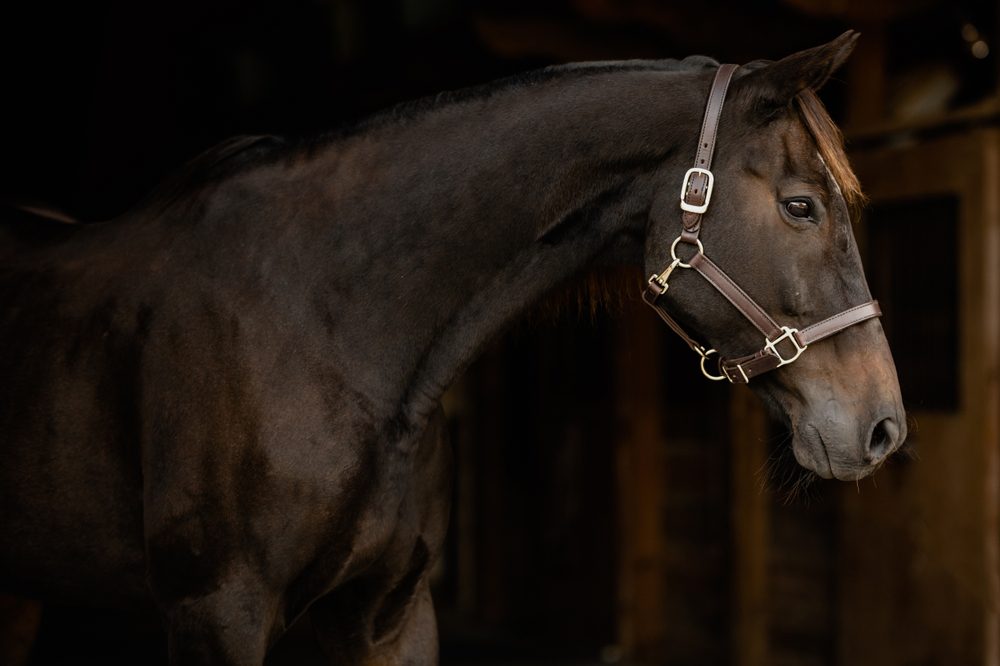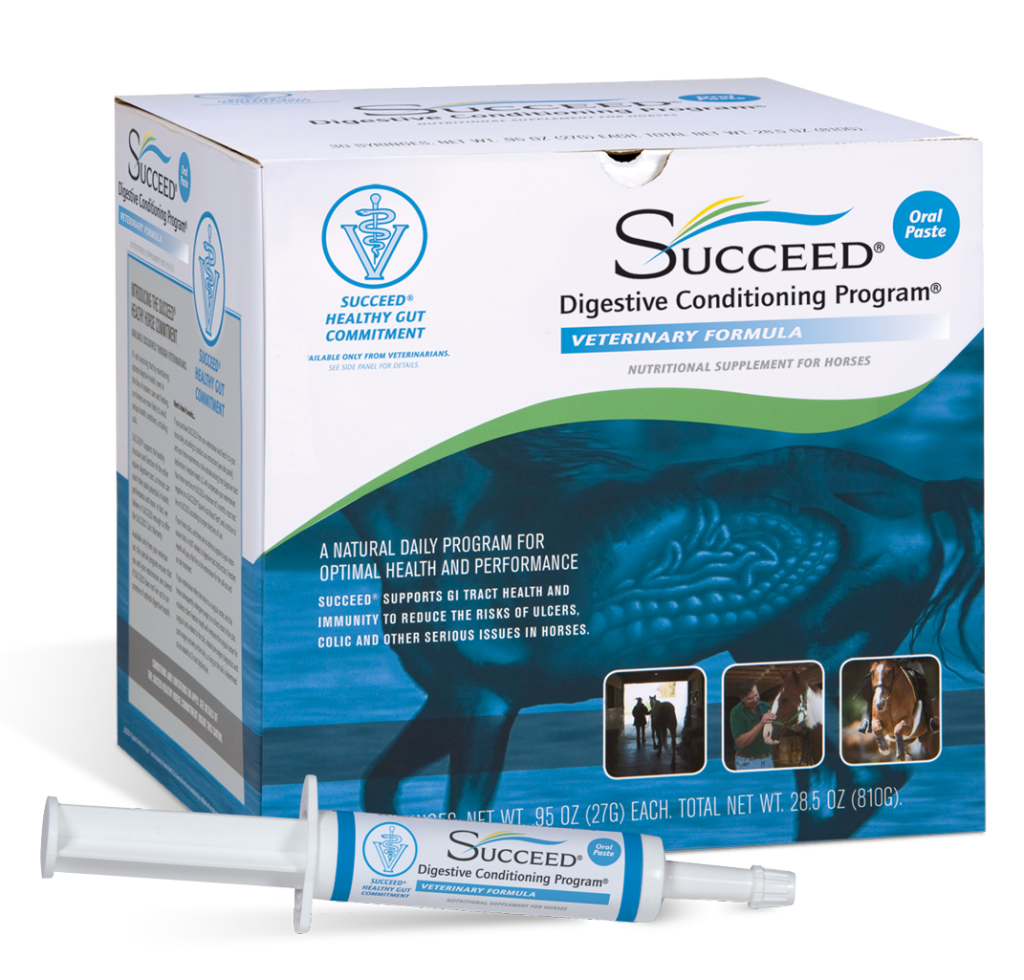
Equine practitioners have long recognized the relationship between gut health and overall wellness, and even behavior and performance. But recent research on the gut-brain-microbiota axis is revealing more about the profound impacts of the gut microbiota on cognition and emotion.
This relationship is significant in equine practice due to the elevated risk of microbiota alterations associated with the stressful lifestyles of performance horses. Microbial imbalances can alter behavior and have a significant adverse effect on equine performance.
Resistance, anxiety, and stereotypies may indicate an underlying gastrointestinal issue. But understanding the mechanisms and signaling pathways of the gut-brain axis can help practitioners support behavioral improvements in equine patients by addressing the gut microbiota.
Bacterial Environment in the Horse’s Gut: The Microbiota
The equine hindgut is home to trillions of microbes essential for forage digestion. These bacteria ferment fiber in the hindgut and produce volatile fatty acids used by horses as their primary energy source. (Dougal et al., 2012)
These microbes also produce other metabolites that enter the bloodstream from the gastrointestinal tract and circulate throughout the body. These metabolites can impact several bodily functions and organ systems, including the brain.
Alterations in the gut microbiota are associated with metabolic disorders, gastrointestinal diseases, and neurologic conditions. Several factors modify the gut microbiota throughout the horse’s life, including genetics, the environment, diet, medications, gastric secretions, and stress.
Microbial diversity is essential for mental and physical health. When the gut microbiota loses diversity and stability, the resulting dysbiosis can lead to systemic inflammation and a cascade of issues in performance horses. (Garber et al., 2020)
How the Gut Microbiota Impacts Equine Brain Function and Behavior
The microbiota-gut-brain axis is a bi-directional communication framework between the gut and the brain. The gastrointestinal tract is heavily innervated by the vagus nerve, which serves as a direct communication channel to the central nervous system.
Microbial metabolites also affect brain function by influencing the physiology of the endocrine and immune systems. Basic functions regulated by the gut microbiota through the gut-brain axis include intestinal motility, secretions, permeability and mucosal immunity.
The gut-brain axis also involves complex functions such as visceral pain, hunger, mood, emotion, and cognition. In addition, early life changes in the microbiota can alter neural development and lead to neurological disorders in adulthood.
Disruption of the gut microbiota and intestinal barrier function can trigger immune states in the horse associated with disruptive signaling on the gut-brain axis. As a result, leaky gut and other inflammatory disorders of the gastrointestinal tract often lead to inflammation in the central nervous system.
Most microbiota diseases arise from a narrowing of diversity or loss of stability. A normal gut and balanced microbiome support normal inflammation levels and a healthy central nervous system. Conversely, abnormal gut function can lead to increased circulation of inflammatory mediators that alter behavior. (Kraimi et al., 2019)

Signaling Pathways Along the Microbiota-Gut-Brain Axis
Researchers explore how microbial regulation impacts brain physiology by studying the behavioral effects of microbial deficiencies and alterations through probiotics, antibiotics, fecal transplants, and infections using germ-free animals.
Anxiety and Stress
Germ-free models use animals raised without microbes. These animals frequently exhibit anxiety-like behaviors and have an exaggerated stress response. Stress significantly impacts the gut microbiota and strongly correlates with fear and anxiety.
Elevated stress hormone levels can decrease the abundance of gut microbiota and increase intestinal permeability. Studies in humans have also associated microbiota disruptions caused by early childhood stress with the development of irritable bowel syndrome and depression.
Microbial Deficiencies
Research in germ-free animals has also found morphological changes in the brain associated with microbial deficiencies. These changes include dendritic hypertrophy in pain-related brain areas and the amygdala, which is a brain center associated with fear and anxiety.
Structural alterations are also evident in the prefrontal cortex of germ-free animals, which significantly affects the integration of experiences and the expression of emotions. (Luczynski et al., 2016)
Other brain areas affected by microbial deficiencies include the hippocampus, which is critical for learning and memory. Stress and microbial disruptions decrease brain-derived neurotrophic factor (BDNF) in the hippocampus, leading to abnormal development.
Tryptophan and Serotonin
Another signaling pathway along the gut-brain barrier involves tryptophan, an essential amino acid for horses. Microbes process tryptophan to produce bioactive agents that act as signaling molecules along the gut-brain axis.
Tryptophan is a precursor to serotonin, which plays a crucial role in mood and behavior. But the largest reservoir of serotonin is found in the gastrointestinal tract, where it helps regulate intestinal motility and secretions. The gut microbiota regulates the availability of tryptophan for the central nervous system. (Kennedy et al., 2017)
Germ-free animals have abnormal levels of tryptophan that can lead to abnormal brain and gut function. But stress can also alter serotonergic signaling on the gut-brain axis and contribute to depression. Short-chain fatty acids produced by fiber-fermenting bacteria in the equine hindgut help regulate the stress response by attenuating cortisol.
Implications for the Equine Practitioner
Research findings in germ-free animal models support a strong correlation between equine gut health, stress, and behavior. Horses are particularly susceptible to stress, and many performance horses lead stressful lifestyles that can disrupt microbial diversity and impact brain function.
Reduce Stress
Breaking the positive feedback loop between stress and poor gut health is critical to support optimal performance and behavior. But the influence of microbiota on the brain is often overlooked in horses with clinical signs of gastrointestinal disorders.
Reducing stress isn’t always practical when managing performance horses. Instead, practitioners should focus on increasing stress resilience in horses by actively supporting a balanced gut microbiota with nutritional intervention in horses subject to chronic stress. (Destrez et al., 2019)
Include Prebiotics
Prebiotics can encourage the growth of existing microbes by feeding the beneficial bacteria and promoting the production of volatile fatty acids. While some studies support using probiotics in humans, more research is needed to determine which strains benefit horses.
Offer Nutritional Support
Healing the intestinal lining is also essential for horses struggling with dysbiosis and inflammatory gastrointestinal disorders like leaky gut. The amino acids glutamine and threonine found in SUCCEED Veterinary Formula can support intestinal healing and mucus production. Further, SUCCEED is formulated to support microbiota health with the inclusion of prebiotics as well as other components that strengthen and support the healthy structure, function, and microbial balance of the entire GI tract.
Gastric acid helps kill pathogens that can disrupt gut microbial populations. While omeprazole is an effective, short-term treatment for gastric ulcers, it can adversely affect the hindgut and may lead to further health and behavioral problems after treatment.
By supporting hindgut health and a balanced microbiota with SUCCEED, practitioners can promote optimal behavior through the gut-brain axis for peak performance in their patients.

Register for Our Free Microbiota Webinar
Register for our free webinar series on the microbiota and equine health and performance for a more in-depth look into the gut-brain connection.
References
- Dougal, K. et al. A comparison of the microbiome and the metabolome of different regions of the equine hindgut. FEMS Microbiol Ecol. 2012.
- Garber, A. et al. Factors Influencing Equine Gut Microbiota: Current Knowledge. J Equine Vet Sci. 2020.
- Kraimi, N. et al. Influence of the microbiota-gut-brain axis on behavior and welfare in farm animals: A review. Physiol & Behav. 2019.
- Luczynski, P. et al. Growing up in a Bubble: Using Germ-Free Animals to Assess the Influence of the Gut Microbiota on Brain and Behavior. Neuropsychopharmacology. 2016.
- Kennedy, P. et al. Kynurenine pathway metabolism and the microbiota-gut-brain axis. Neuropharmacology. 2017.
- Destrez, A. et al. Dietary-induced modulation of the hindgut microbiota is related to behavioral responses during stressful events in horses. Physiol & Behav. 2019.



